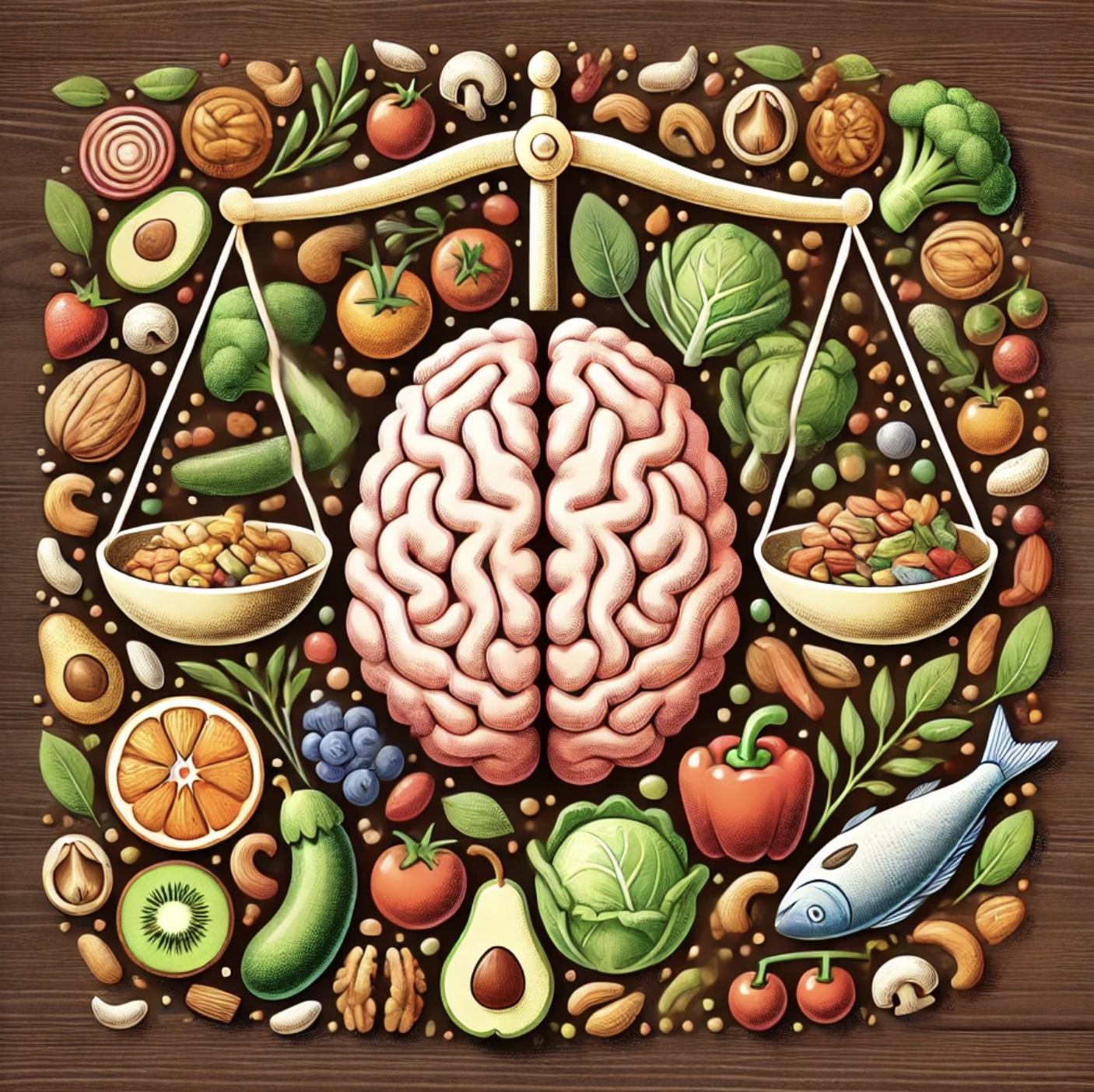
The food we eat doesn’t just impact our physical health—it also plays a crucial role in mental well-being. Studies suggest that a nutritious diet can positively influence mood, energy levels, and overall mental health. While food alone isn’t a cure for mental health disorders, it can be a powerful tool in supporting emotional balance and resilience.
Can Healthy Eating Cure Depression?
There’s no scientific evidence that eating a healthy diet can cure depression or other mental illnesses. However, research shows that nutritional choices can help improve some symptoms. A balanced diet is one piece of a larger mental health treatment plan, which may also include therapy, medication, and lifestyle changes. (Jacka et al., 2017)
The Connection Between Food and Mood
The relationship between mental health and nutrition is still being studied, but researchers have found strong links between what we eat and how we feel. Food can affect mood in both positive and negative ways, and both overeating and undereating can influence emotional well-being.
Positive Effects of Nutrition on Mental Health
- Eating a well-balanced diet benefits both physical and mental health. Studies suggest that the Mediterranean diet, rich in fruits, vegetables, whole grains, legumes, fish, and olive oil, is linked to lower rates of depression and cognitive decline. (Lassale et al., 2019)
- Gut health influences mood. Nearly 95% of serotonin—a neurotransmitter responsible for mood regulation—is produced in the digestive system. Foods high in probiotics and fiber may help regulate mood by reducing inflammation and supporting a healthy gut microbiome. (Carabotti et al., 2015)
- Eating meals together has mental health benefits. Sharing meals with family or friends has been shown to improve self-esteem, reduce stress, and lessen depressive symptoms. (Fulkerson et al., 2006)
Negative Effects of Poor Nutrition on Mental Health
- Caffeine and sugar can cause mood crashes. While they may provide a short-term boost, the crash that follows can contribute to irritability, anxiety, and fatigue.
- Chronic hunger is linked to mental health disorders. Food insecurity and inadequate nutrition have been associated with increased risks of anxiety, depression, and PTSD. (Alaimo et al., 2002)
- Disordered eating harms both physical and mental health. Eating disorders, restrictive eating, and obsessive focus on "clean" eating can lead to stress, anxiety, and social isolation.
Barriers to Healthy Eating
While eating well can have mental health benefits, it’s not always accessible to everyone. In the U.S., various social and economic factors create barriers to healthy eating, including:
- Poverty and Food Insecurity – Nutritious food is often more expensive and requires time to prepare. Many low-income individuals also live in food deserts with limited access to fresh produce.
- Discrimination and Inequality – Research shows that food deserts are more common in predominantly Black and Hispanic neighborhoods, making healthy eating even more challenging. (Walker et al., 2010)
- Diet Culture and Misinformation – Each year, Americans spend over $33 billion on weight loss products. Many of these diets do not promote long-term health and may lead to disordered eating habits. (Boston Medical Center, 2020)
- Disability and Accessibility Issues – Grocery stores and food markets are not always accessible for people with disabilities, and certain medications can alter appetite or digestion.
- Mental Health Conditions – Anxiety, depression, and other mental illnesses can cause appetite changes, low motivation, and difficulty preparing meals.
The Harmful Impact of Diet Culture
The U.S. diet culture promotes the idea that weight is the primary measure of health, but research challenges this assumption:
- Diets often fail long-term. Studies show that up to two-thirds of dieters regain more weight than they originally lost within five years. (Mann et al., 2007)
- Weight is not the sole indicator of health. Focusing solely on weight can lead to unhealthy behaviors, body dissatisfaction, and stress. (Tylka et al., 2014)
- Mental health is not determined by body size. Thinness does not guarantee happiness or mental well-being, and people of all body sizes can experience mental health challenges.
How to Improve Nutrition Safely
Rather than following restrictive diets, focus on long-term, sustainable changes that promote well-being. Here’s how:
1. Consult a Healthcare Professional
Before making major dietary changes, speak with a doctor or registered dietitian. They can provide guidance tailored to your specific needs rather than relying on fad diets or unproven weight-loss trends.
2. Make Gradual Changes
Drastic shifts in diet can be overwhelming and unsustainable. Instead, try small, manageable adjustments, such as:
- Adding more whole foods like vegetables, fruits, and whole grains.
- Reducing processed foods without eliminating them completely.
- Incorporating protein and healthy fats to maintain energy levels.
3. Avoid an All-or-Nothing Mindset
A "perfect" diet isn’t necessary for good mental health. Allowing flexibility and focusing on overall patterns of nutrition is more important than rigid rules.
4. Focus on Enjoyment and Balance
Food should be both nutritious and enjoyable. Mindful eating—paying attention to hunger and fullness cues—can help foster a healthier relationship with food.
Final Thoughts
Nutrition is a key factor in mental health, but it’s only one part of a larger picture. While a well-balanced diet can support mood, energy, and emotional well-being, it is not a standalone treatment for depression or other mental illnesses.
The best approach to nutrition is flexible, balanced, and individualized. By focusing on accessible, sustainable changes rather than restrictive diets, you can support both your mental and physical health in a meaningful way.
If you struggle with nutrition due to mental health challenges, seeking support from a healthcare professional can be an important step toward finding what works best for you.


